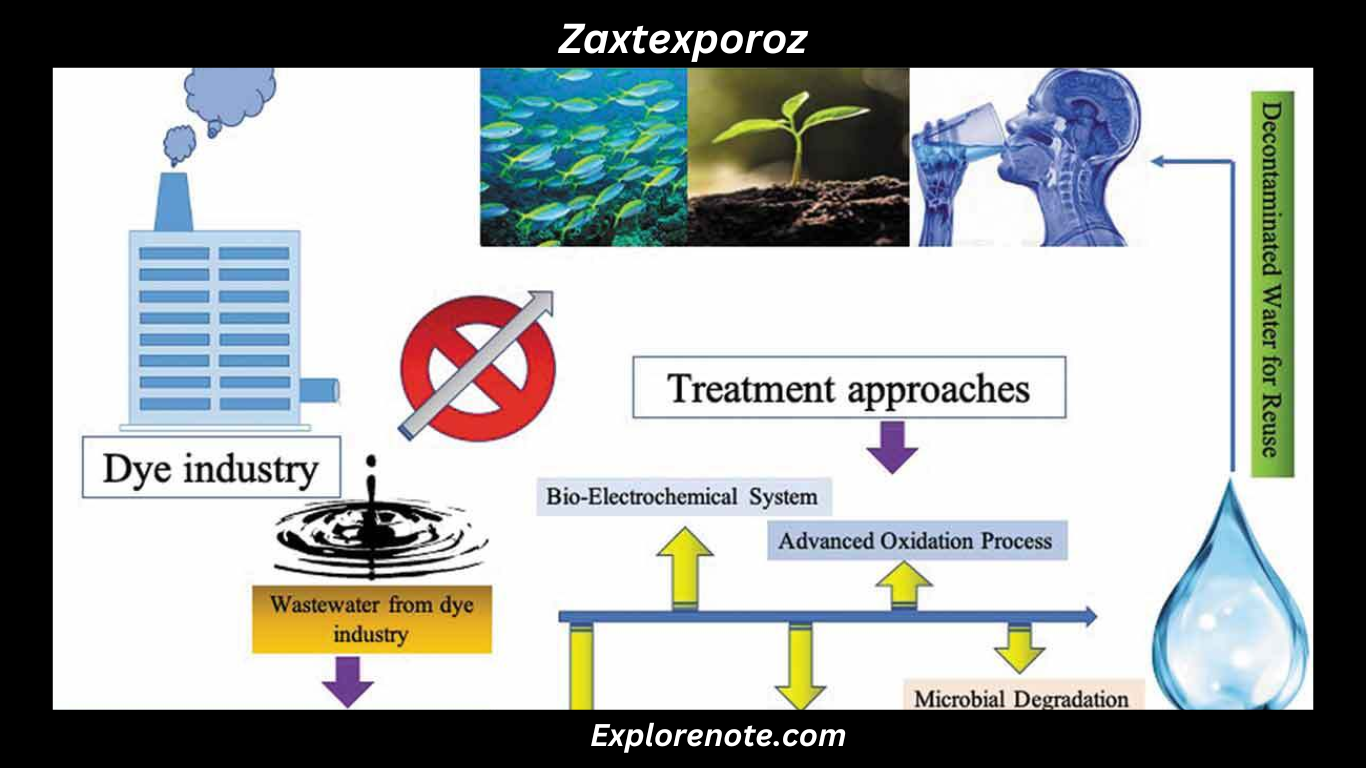The manufacturing industry is evolving at a rapid pace, with new technologies emerging to improve efficiency, durability, and sustainability.
One such innovation making waves is Zaxtexporoz, a revolutionary material treatment process designed to enhance the quality and longevity of various materials.
From aerospace to automotive and construction, industries are looking for advanced solutions that reduce costs while maintaining high standards.
Zaxtexporoz offers a game-changing approach that not only strengthens materials but also makes them more resistant to wear and tear.
In this comprehensive guide, we will explore the origins, working principles, benefits, and applications of Zaxtexporoz. We will also discuss its challenges and future prospects, providing a complete understanding of this groundbreaking process.
Origins and Development of Zaxtexporoz
Material treatment has been a critical aspect of manufacturing for centuries. Early civilizations used heat and pressure to strengthen metals and improve their durability.
Over time, technological advancements introduced chemical treatments, coatings, and nanotechnology to enhance material performance.
The concept of Zaxtexporoz was developed by a team of engineers and scientists who aimed to create a process that could maximize material strength while reducing environmental impact.
Through extensive research and testing, they devised a method that alters the molecular structure of materials, improving their properties without excessive energy consumption.
This breakthrough has led to widespread interest in Zaxtexporoz, with industries exploring ways to integrate it into their production processes.
How Zaxtexporoz Works
Understanding the Process
Zaxtexporoz is a multi-phase treatment that enhances the physical and chemical properties of materials. The process involves:
- Surface Preparation – The material is cleaned to remove impurities that could interfere with treatment.
- Molecular Reconfiguration – A specialized energy field or chemical treatment is applied to alter the internal structure of the material.
- Strengthening and Hardening – The material undergoes controlled heat or pressure application, improving its durability.
- Final Coating (if applicable) – Some versions of Zaxtexporoz include an additional protective layer to enhance resistance to corrosion and wear.
This process ensures that the treated material becomes stronger, more resilient, and more resistant to environmental damage.
Comparison with Traditional Methods
| Feature | Traditional Treatment | Zaxtexporoz Treatment |
|---|---|---|
| Energy Efficiency | High energy consumption | Optimized for minimal energy use |
| Material Strength | Moderate enhancement | Significant durability increase |
| Environmental Impact | Can produce pollutants | Eco-friendly & sustainable |
| Cost Effectiveness | Expensive in the long run | Reduces maintenance & replacement costs |
By improving material properties while being cost-effective and environmentally friendly, Zaxtexporoz is a step ahead of traditional treatment methods.
Benefits and Applications of Zaxtexporoz
Key Benefits of Zaxtexporoz
The adoption of Zaxtexporoz is driven by its numerous advantages, including:
1. Enhanced Durability
Materials treated with Zaxtexporoz last significantly longer than untreated counterparts.
2. Increased Resistance
Provides superior protection against corrosion, abrasion, and extreme temperatures.
3. Cost Savings
Reduces the need for frequent maintenance and replacements, cutting overall expenses.
4. Eco-Friendly Process
Lowers energy consumption and reduces waste, making it a sustainable solution.
5. Improved Performance
Ensures materials meet the highest industry standards for strength and resilience.
Industries Utilizing Zaxtexporoz
1. Automotive Industry
The automotive sector relies on durable materials to manufacture vehicles that can withstand harsh conditions. Zaxtexporoz-treated metals and composites improve vehicle longevity, reduce weight, and enhance fuel efficiency.
2. Aerospace and Aviation
Aircraft materials need to be lightweight yet strong. By integrating Zaxtexporoz, aerospace manufacturers can produce safer and more efficient aircraft components, reducing wear and tear while maintaining high performance.
3. Electronics and Semiconductor Manufacturing
The electronics industry demands materials that can endure high temperatures and stress. Zaxtexporoz enhances semiconductor coatings, circuit boards, and microchips, increasing their lifespan and efficiency.
4. Construction and Infrastructure
Buildings and infrastructure require materials that can withstand extreme weather and heavy loads. Zaxtexporoz-treated concrete and metals ensure higher resistance to environmental degradation, reducing maintenance costs.
Also Read: Zazichotnoiz_ The Rising Genre Blending Eastern European Folk with Digital Sound
Challenges and Limitations of Zaxtexporoz
While Zaxtexporoz presents numerous advantages in material treatment, its adoption comes with certain challenges and limitations that industries must consider. Below are some of the key barriers that could impact its widespread use:
1. High Initial Investment
One of the biggest challenges of Zaxtexporoz is the significant upfront cost required for setting up the technology. Since it involves advanced molecular restructuring techniques, manufacturers need to invest in specialized equipment, research, and skilled personnel.
While the long-term cost savings are substantial, smaller businesses may find it difficult to afford the initial expenses.
2. Limited Availability and Industry Adoption
As a relatively new technology, Zaxtexporoz is not yet widely available across all industries. Many manufacturers are still unaware of its benefits or hesitant to shift from traditional material treatment methods. The slow adoption rate can be attributed to:
- Lack of awareness in the manufacturing sector
- Limited suppliers offering Zaxtexporoz treatment services
- Resistance to change from industries using conventional methods
As more research and successful case studies emerge, this limitation is expected to improve over time.
3. Compatibility with Certain Materials
While Zaxtexporoz enhances the durability and strength of many materials, it may not be compatible with all material types. Some materials could react unpredictably to the treatment, leading to:
- Structural inconsistencies
- Reduced effectiveness on certain composites
- Potential degradation if applied incorrectly
Industries must conduct thorough testing and evaluation to ensure that Zaxtexporoz is suitable for their specific materials before full-scale implementation.
4. Skilled Workforce and Training Requirements
Implementing Zaxtexporoz requires specialized knowledge and expertise, making it essential for manufacturers to train their workforce. This includes:
- Learning how to apply the process correctly
- Understanding material compatibility
- Managing advanced treatment equipment
Training costs and the time required to develop a skilled workforce can slow down the adoption of this technology.
5. Potential Environmental and Regulatory Concerns
Although Zaxtexporoz is marketed as an eco-friendly process, it still requires certain chemical treatments, energy inputs, and operational resources. Some concerns include:
- Ensuring compliance with industry regulations for material treatments
- Managing any by-products that may arise during the process
- Monitoring energy consumption to maintain sustainability goals
Governments and regulatory bodies may introduce new policies and guidelines that industries must adhere to, potentially affecting the widespread application of Zaxtexporoz.
Future Trends and Innovations in Zaxtexporoz
As research continues, new advancements in nanotechnology, AI-driven material analysis, and automation are expected to further improve Zaxtexporoz. Future innovations may include:
1. AI-Optimized Treatment Processes
Using artificial intelligence to customize Zaxtexporoz treatments for different materials.
2. Nanotechnology Integration
Enhancing material strength at the atomic level for even better durability.
3. Sustainable Variants
Developing processes that require zero waste and even lower energy consumption.
These advancements will cement Zaxtexporoz’s role as a key player in the future of manufacturing.
FAQs About Zaxtexporoz
1. Is Zaxtexporoz safe for all materials?
While highly effective, some materials may not be compatible with Zaxtexporoz due to their molecular composition. Testing is recommended before application.
2. Can small businesses afford Zaxtexporoz technology?
The initial cost may be high, but long-term savings make it a worthwhile investment for businesses of all sizes.
3. How long does a Zaxtexporoz treatment last?
Depending on the material and usage, the effects can last several years, significantly reducing maintenance requirements.
4. Does Zaxtexporoz affect material weight?
No, the process enhances material properties without adding significant weight, making it ideal for aerospace and automotive applications.
5. Can Zaxtexporoz be combined with other treatment methods?
Yes, in some cases, it can complement traditional coatings or treatments to enhance overall performance.
Conclusion
Zaxtexporoz is revolutionizing the manufacturing industry by offering an efficient, durable, and eco-friendly material treatment process.
By enhancing material strength, reducing maintenance costs, and improving performance, it provides a sustainable solution for various industries.
While challenges exist, ongoing advancements in AI and nanotechnology will only increase the adoption and effectiveness of Zaxtexporoz in the coming years.
Whether in automotive, aerospace, construction, or electronics, this innovative process is set to redefine material treatment for the future.
Industries that embrace Zaxtexporoz today will be at the forefront of technological advancements and sustainability, ensuring long-term benefits and competitive advantage. 🚀










